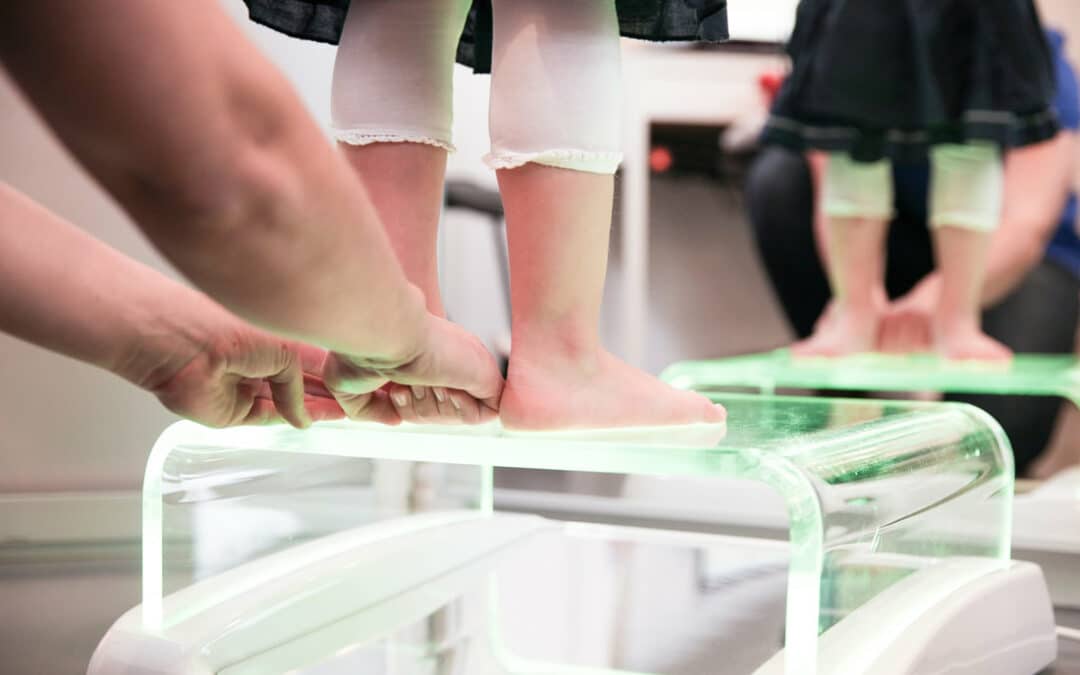The first meeting with an Orthotist is an important one. It’s where you sit with the team to discuss the details of your orthosis. Since you’ll be coming back for many checkups after this initial meeting, it’s wise to get your most vital questions out of the way in the beginning.
There’re many questions you must ask when you first meet with the Orthotist. Such as how should I care for the orthosis? Can I shower with it? What clothing considerations do I have to think about? And so on.
Well, the good news is that your Orthotist will tell you about most of these things without you having to ask them. But still, it’s best to have a general idea of what you should discuss with your orthosis.
Here is a list of five such questions you should ask your Orthotists, based on our many years of clinical experience.
1. How Long Will the Adjustment Take?
Getting used to a new orthosis takes time. And if it’s your first time getting one fitted, then you should get an estimate of how long it’ll take until your body is adjusted to the device.
That is especially important for athletes and younger patients. Since their physical activity levels are above-average and the orthosis will cause some restrictions to their movements. But that does not mean that they can’t run around the playground or ride a bike because of it.
Many of our patients are active in different sports such as mountain biking, volleyball, and surfing, to name a few.
Nevertheless, have an open conversation with your Orthotist to get an idea of how long the adjustment period will be. And prepare accordingly.
Moreover, you should ask for a timeline for when you can potentially take off the orthosis for good (if your condition is temporary). Orthotist will look at your scans and manually assess you to create a prognosis.
2. How Much Will It Cost?
Most times, an off-the-shelf orthosis will fit your needs just fine, especially if you need it for a small amount of time, such as after an ACL tear or surgery.
A custom orthosis is more suitable for long-term orthosis, such as scoliosis or an AFO for your child.
Your Orthotist is the best judge of what kind of device is the best fit for you. Make sure you discuss co-pay options or your insurance packages with the Orthotist and factor that into the decision.
Cost is a significant factor that affects future care. So this question is vital for the long term.
Your Orthotist or the clinic may also guide you on alternative payment options.

3. How Does Bracing Work?
This question is essential for your peace of mind.
Your primary care physician may not be able to tell you in detail how an orthosis will help your condition.
But an Orthotist is a specialist dealing with the fitting of braces and other orthoses. They can explain to you exactly why you need it and how the device will work to improve your condition.
When you know how the orthosis works, you can better set your expectations.
A spinal brace is there to ensure the condition doesn’t worsen in some cases. And other treatments fix your scoliosis. Learning this information will make it easier for you to wear the brace despite some initial discomfort.
Knowing how the orthosis works are essential for you to understand your condition in detail.
If you want to know more about the purpose of an orthosis and how it works, then book a consultation with us. We have a team of certified Orthotists with years of experience ready to help you with your bracing needs.
4. How Long Will the Orthosis Last?
An Orthotist will either show you or discuss the different orthosis types during your visit. The orthoses come in various designs and other materials suitable for several purposes.
It’s wise to ask about the durability of each one. Some will wear out much quicker than others, depending on the environment, humidity levels and use.
You should ask about signs of damage to the orthosis, when you should come back for a new one, and how to care for it.
5. What Are the Possible Complications I Should Expect?
Even though every licensed Orthotist will tell you about the complications of the orthosis, you should still feel free to talk about your fears and clarify all your concerns.
Complications vary from person to person, depending on the type of orthosis, potential allergies, and many other factors.
Orthotists are trained to assess the risks and potential complications to employ preventive measures properly. They’re best equipped to answer your questions, no matter how specific they may be.

In Conclusion
The five questions mentioned above will help you cover your bases. But there may be more questions that are personal to you.
For instance, if you have a busy schedule, you might want to ask about the average number of appointments so that you can make alternate arrangements.
You may want to ask for recommended support groups because the orthosis journey can become difficult.
The main point is that you use your first meeting with an Orthotist to learn about the steps involved in the fitting and training for the use of orthosis.
You can reach out to us at any one of our locations for a free expert consultation from our Orthotists.




